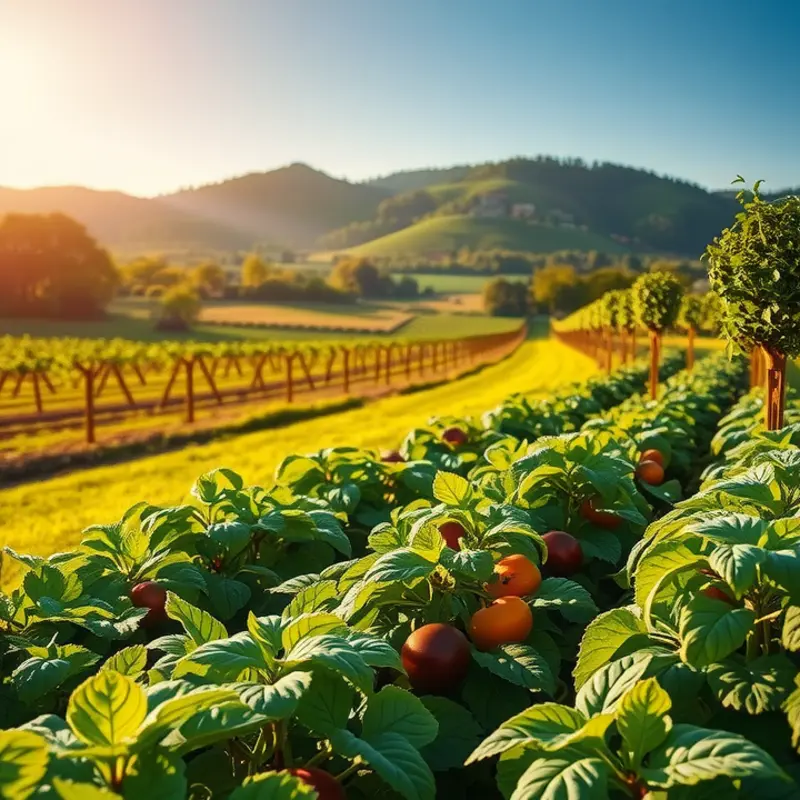Hydration is a critical aspect of health, yet many myths surround it, leading to confusion about the best practices for fluid intake. Distinguishing fact from fiction can empower individuals to make informed decisions about their hydration needs. This exploration clarifies common misconceptions regarding water consumption, ensuring that you understand the actual requirements for optimal hydration.
Myth 1: You Must Drink Eight Glasses of Water a Day

The notion that everyone should drink eight glasses of water a day is deeply embedded in our collective consciousness. This guideline has been passed down through generations, often cited with unwavering confidence. However, the origins of this recommendation are unclear, and its scientific basis is shaky at best.
The eight glasses rule likely stems from a 1945 suggestion by the U.S. Food and Nutrition Board. They recommended a daily water intake of 2.5 liters, including all beverages and foods consumed throughout the day. Over time, this got misinterpreted and simplified to eight eight-ounce glasses, ignoring the broader context that most foods contain water.
Individual hydration needs can vary significantly based on factors such as age, sex, physical activity level, climate, and overall health. For instance, an athlete training in a hot climate will require more fluids than a sedentary person in a cooler environment. Similarly, dietary choices can influence hydration needs. A diet rich in high-water content foods, like those found in Mediterranean cuisine, may lead to less necessity for additional drinking, while a diet heavy in dry, salty foods might amplify thirst.
The body’s hydration needs are also influenced by metabolic activity. When we consume food, especially those with a high percentage of carbohydrates, metabolism generates water as a byproduct. Thus, dietary composition plays a direct role in determining how much water one might need. For a deeper exploration of how dietary choices can impact hydration, you can read more on this Mediterranean chickpea salad.
Moreover, the individual sensation of thirst is a finely tuned mechanism that serves as a reliable indicator of when you need to drink. Ignoring thirst, in favor of strict adherence to the eight-glass guideline, is not advisable. It’s crucial to listen to your body instead of following an arbitrary rule.
Medical conditions can also necessitate adjustments to fluid intake. Certain kidney conditions, for instance, might require individuals to limit their water intake instead of increasing it. Therefore, it’s essential to personalize hydration advice, taking each individual’s specific needs and circumstances into account.
In conclusion, while staying hydrated is undeniably important, the rigid adherence to drinking eight glasses a day is a myth that should be dispelled. Prioritize listening to your body’s signals and consider your lifestyle, diet, and environmental factors to make informed hydration choices. This approach ensures you meet your unique needs, seamlessly blending into a health-conscious lifestyle that respects individual variations.
Myth 2: Coffee and Tea Dehydrate You

It’s a common belief that caffeinated beverages like coffee and tea cause dehydration. This stems from caffeine’s known diuretic effect, which increases urine production. However, scientific research provides a more nuanced view.
The diuretic impact of caffeine is often overstated. Moderate consumption of caffeinated drinks does not lead to significant fluid loss beyond what is consumed. Studies indicate that habitual coffee and tea drinkers develop a tolerance to caffeine’s diuretic effect. This means that the fluid intake from these beverages often compensates for any increase in urination, maintaining or even enhancing overall hydration levels.
A study published in PLOS ONE investigated the hydration effects of coffee. Researchers concluded that moderate coffee consumption contributes positively to daily fluid intake. This finding challenges the assumption that coffee drinkers need to drink additional plain water to stay hydrated.
Tea, often celebrated for its antioxidant properties, is similarly misunderstood in the context of hydration. In a study examining tea’s effects, participants did not experience any dehydration, even with an intake equivalent to four cups daily. Thus, tea should not be dismissed as a potential hydration source.
It’s crucial to consider the broader context. Hydration involves more than just fluid quantity—it encompasses the balance of electrolytes and osmolality in body fluids. Coffee and tea contain some electrolytes and other beneficial compounds. They can contribute to both hydration and nutritional needs, albeit not in the same way as water or electrolyte solutions.
Coupling caffeinated drinks with foods rich in nutrients, such as those found in a Mediterranean diet, can further support hydration and overall wellness. For example, pairing a cup of tea with a Mediterranean chickpea salad Mediterranean Chickpea Salad: A Burst of Freshness can complement hydration with fiber and essential vitamins.
Understanding how coffee and tea impact hydration dispels myths around their use. It’s unnecessary to forgo these beverages or drink excessive water afterward. Embrace the balanced approach and savor your morning cup, knowing it can fit comfortably within a healthy, hydrated lifestyle.
Final words
Hydration plays a vital role in health and wellness, but understanding how much water we actually need can be complicated by myths and misconceptions. The eight-glass rule is a simplistic guideline that doesn’t account for personal factors like activity levels and environment. Moreover, caffeinated beverages do not inherently lead to dehydration as often claimed. Recognizing these truths empowers individuals to tailor their hydration strategies to fit their unique needs. It’s essential to listen to your body’s cues and adjust your fluid intake accordingly for optimal health.








